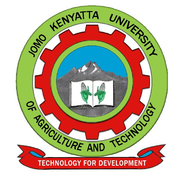
W1-2-60-1-6
JOMO KENYATTA UNIVERSITY
OF
AGRICULTURE AND TECHNOLOGY
University Examinations 2014/2015
END OF SEMESTER EXAMINATION FOR THE DEGREE
OF BACHELOR OF COMMERCE
HRD 2316: REAL PROPERTY LAW
DATE: AUGUST 2014 TIME: 2 HOURS
INSTRUCTIONS: ANSWER QUESTION ONE (COMPULSORY) AND ANY OTHER TWO QUESTIONS
Question One (30 Marks)
a) Discuss briefly on the following headlines:
(i) Acquisition of land through compulsory acquisition. (5 Marks)
(ii) Acquisition of land through adverse possession. (5 Marks)
(iii) The Land Control Board. (5 Marks)
b) As with property generally, it’s possible to create multiple simultaneous claims of “property” in the same land. Explain any five rights that can exist in the same land. (10 Marks)
c) Describe any two characteristics of easements. (4 Marks)
d) What is the definition of “Real Property”? (1 Mark)
Question Two (20 Marks)
a) The process of registration has become increasingly important today. Describe five importance of registration. (10 Marks)
b) Unless the contrary is expressed in the register, all registered land is subject to overriding interests. Outline six of such interests. (6 Marks)
c) Describe two operative systems of land registration in Kenya. (4 Marks)
Question Three (20 Marks)
a) Describe three conditions that must be demonstrated by the state before it can exercise the power of eminent domain. (6 Marks)
b) Explain six factors that will be considered by the court in determining whether or not to grant a right of way. (12 Marks)
c) What is an easement? (2 Marks)
Question Four (20 Marks)
a) Describe three transactions that will require the consent of Land Control Board according to the Land Control Act. (6 Marks)
b) Explain any six factors that will be considered by the court in determining whether or not to grant an access order. (12 Marks)
c) Outline any two positive restrictive covenants that may be found in a tenancy/ease agreement. (2 Marks)
Question Five (20 Marks)
a) Describe any five factors that will be considered by the Land Control Board in granting refusing consent. (10 Marks)
b) Outline any six principles of land policy as provided by the Constitution of Kenya. (6 Marks)
c) Explain two transactions that are exempted from requiring the consent. (4 Marks)
